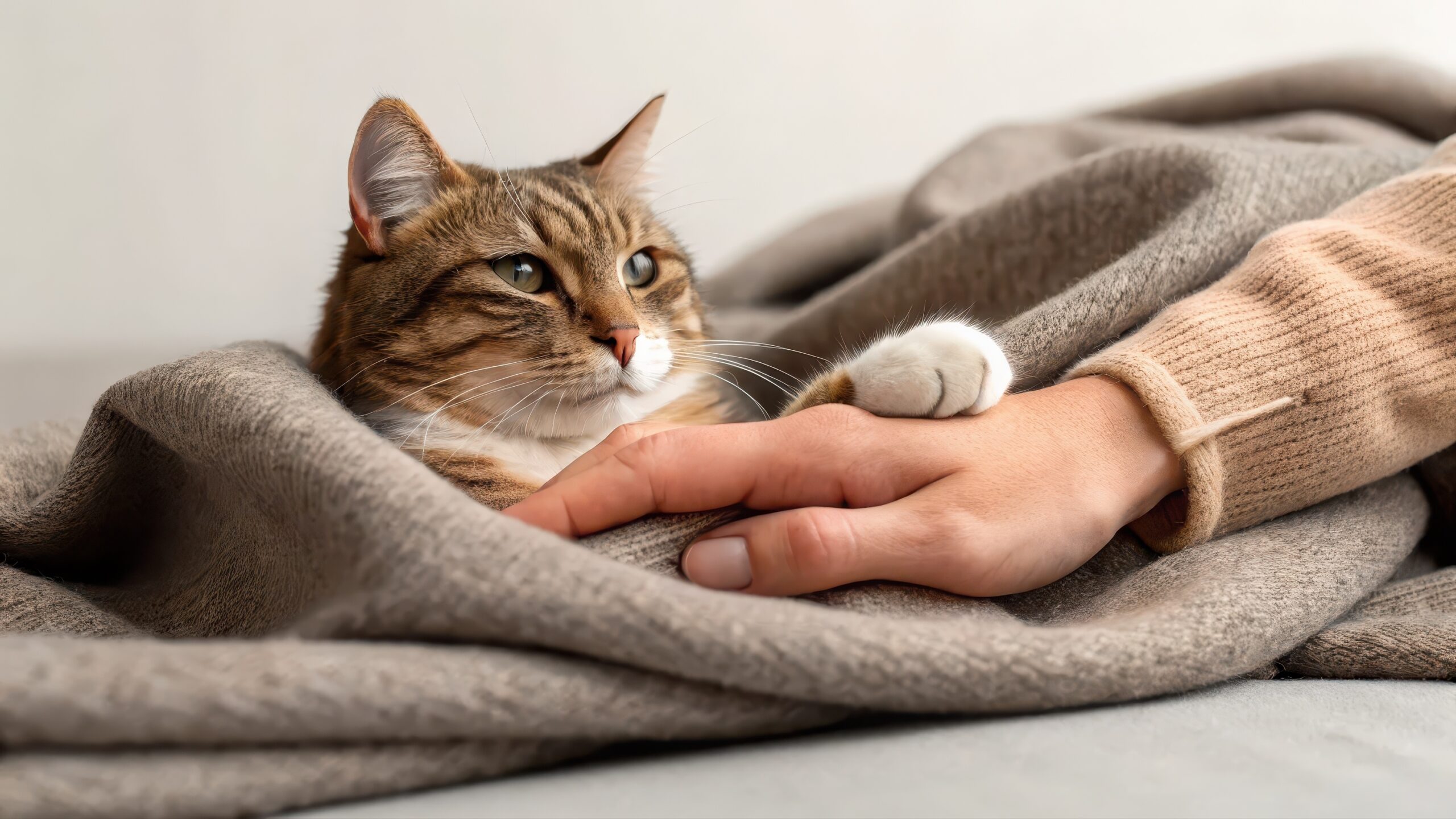Cat Care: Pet-Parent Tips for Feline Wellness

Cats are exquisite, independent creatures with strong natural instincts, habits, and curiosity. When they become cherished members of your family, they are reliant on you for healthy development and lifelong wellness. As pet parents, here are some guidelines for you to care for your fur babies — physically, emotionally, and cognitively.
Physical Well-Being
Water and Nutrition Essentials
Fresh water should always be available. Many cats are drawn to the moving water of fountain features. Just ensure you keep the water fountain clean and free of algae! Additionally, having multiple water sources around the home can help increase a cat’s daily water consumption.
Feed your cat a well-balanced, age-appropriate diet. We educate pet parents on specific recommendations based on their cat’s specific health requirements.
Exercise and Movement
You can encourage daily activity by playing with them, using interactive toys such as feather wands, “fishing” rods, or old-fashioned fun of rolling ping pong balls into paper bags for them to retrieve. Climbing trees and scratching posts can be satisfying and keep them moving. Mobile food toys are also a great way to increase your cat’s daily mobility and are a perfect example of play with an end reward. Vertical scratching surfaces are key to a cat’s health. It’s part of their normal claw-health and grooming routine, muscle stretching and exercise, and stress relief and regulation. It will even protect your furniture! We recommend avoiding laser pointers as they yield frustration due to their lack of an end-game reward.
Preventive Veterinary Care
Schedule regular wellness checks for their general and oral health, and to keep their vaccines up-to-date. Kittens, senior cats, and those with specific health conditions require more frequent check-ups. The one-and-done is not enough to maintain the proper health of this unique subset of cats. Between appointments, become aware of any changes in appetite, behavior, or litter box habits. Be sure to contact us if you see signs of illness, such as hiding, decreased appetite, gastrointestinal upset, inappropriate elimination, or vocalization while going to the bathroom.
Emotional Health
Attention and Affection
Spend quality time with your cat each day, engaging them with play, cuddling, petting, and even conversation. You may think that your cat can’t understand you, but you can train cats with simple commands and cues. Doing so will only strengthen the bond between you and your feline friend.
In their first few months of life, socialization and gentle handling are especially important so they can become comfortable with it. This may include petting, brushing, and nail trimming. Make sure that each interaction is a positive interaction. Slow and steady wins the race. Earn your cat’s trust, even if it means you only trim the nails one paw at a time.
Cats need their space and quiet time, too. Family members should learn to read their cat’s signals and respect their boundaries rather than forcing interactions. Having a quiet area for the cat to retreat to is just part of a proper husbandry setup.
Minimizing Stress
Avoid sudden, loud noises and music, and major changes in their environment, where possible. Cats generally like routine and predictability. Disruptions may be stressful for them. When you introduce pets or people, do so gradually and with respect for their personal space. This will reduce anxiety. Multiple vertical scratching posts, made of different materials, release feel-good chemicals in the brain and help cats relieve stress, frustration, and extra energy.
Cognitive Wellness
Safe and Stimulating Environments
Cat trees, window perches, and cozy beds are great places for cats to relax. To keep their environment interesting, you can rotate or introduce new toys and places to hang out.
Puzzles and Games
Many cats enjoy food-dispensing or puzzle toys that stimulate their mental acuity and provide rewards. You can also hide treats around the house or in boxes for them to “hunt”.
New Experiences
Indoor cats can benefit from the opportunity to explore new vantage points, sights, and smells with catios and leash walks — they’re great for bird-watching, too. Rearranging furniture occasionally and creating new hiding spots can stimulate curiosity.
Final Thoughts
By taking care of your cat’s physical, emotional, and cognitive health needs, your fur baby will live his or her best life. Even if you adopt a senior cat, who has had a lifetime of experiences before joining your family, your kindness and attention to their needs will enhance their quality of life and well-being. There’s a reason why the ancient Egyptians treated cats like kings and queens, and we should too!
At Wags Animal Hospital, we’re here to guide you on any of these topics and help you safeguard your kitty’s health. Get in touch with us today to schedule a visit for your feline friend in our cat-only exam room!